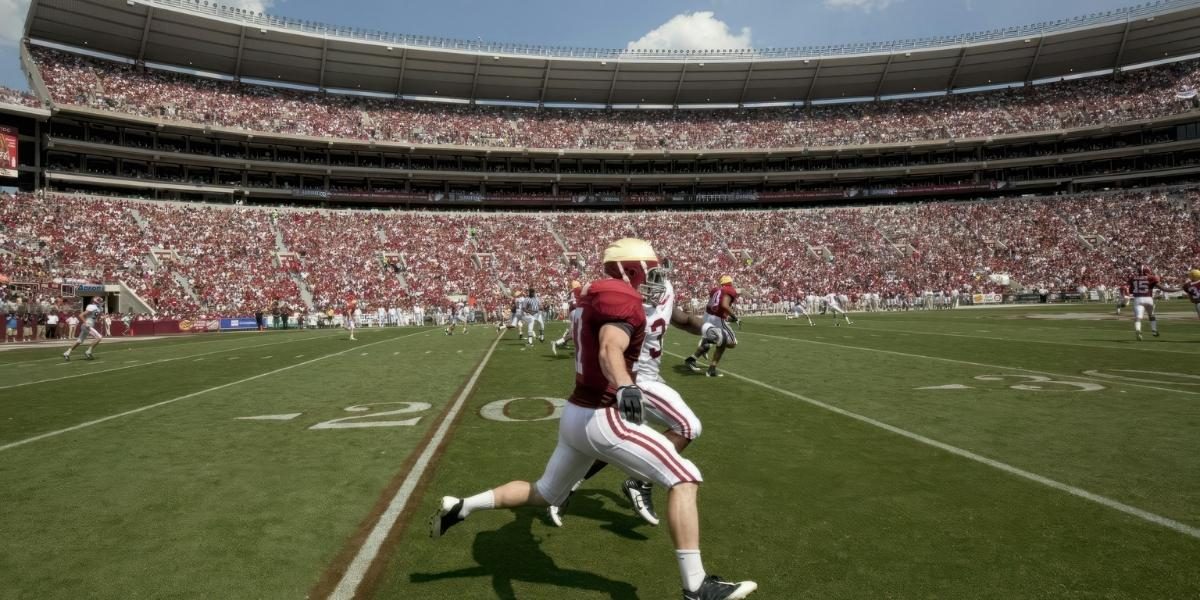The phrase America’s Game sparks a passionate conversation among sports fans and cultural commentators alike. For generations, football, baseball, basketball, and soccer have all claimed this title, each backed by rich histories and deep connections to American life. The question isn’t just about popularity, but about which sport truly captures the essence and soul of the nation. Unpacking this debate requires understanding how these games reflect the values, traditions, and evolving identity of the United States.
When considering what makes a sport America’s Game, several factors come into play. It’s not merely about the number of fans or revenues but the cultural significance, historical roots, and how the sport intertwines with the American experience. Each game represents a different facet of the country’s diverse social fabric. The identity of America’s Game is layered with tradition, innovation, and community spirit.
Read Also: The Power of Storytelling: How Arenthous Davon Frazier Captures the Human Side of Sports
Why Football Often Leads the Conversation
Football has solidified itself as a cultural juggernaut, deeply embedded in American life. Its growth throughout the 20th century coincided with critical periods in the nation’s history, including post-war prosperity and the civil rights movement. The sport’s emphasis on physicality, teamwork, and strategic complexity resonates with many Americans, symbolizing resilience and collective effort.
The ritual of watching football on Sundays and the spectacle of the Super Bowl have become social cornerstones. Industry experts point to the sport’s dominance on television and in media as a key driver of its cultural status. The Super Bowl regularly attracts one of the largest global television audiences, highlighting football’s unparalleled reach. This visibility fosters a shared national experience, reinforcing football’s connection to American identity.
Baseball’s Deep Roots in American Tradition
Baseball holds a unique place as a symbol of America’s past and cultural continuity. Often called “America’s pastime,” its origins date back to the 19th century and it has been closely linked to American social history ever since. The slower pace and leisurely rhythm of baseball games offer a contrast to the fast-moving modern world, allowing fans to savor moments of nostalgia and community bonding.
Baseball’s role during challenging eras, such as the Great Depression and World War II, provided a sense of normalcy and hope. Historians highlight the sport’s impact on social progress, especially through figures like Jackie Robinson, who broke the color barrier and became a symbol of racial integration and courage. This intertwining of sport and social change solidifies baseball’s claim to the heart of American culture.
Basketball as a Reflection of Modern America
Basketball embodies the energy, diversity, and innovation of contemporary America. Originating in the late 19th century but exploding in popularity during the 20th and 21st centuries, the sport’s urban roots have made it accessible across socioeconomic lines. A basketball hoop and ball are often all that’s needed to bring people together, making the sport a vital part of many communities.
The fast-paced nature of basketball mirrors the dynamic rhythm of modern life. Experts note that basketball’s influence extends beyond the court, with many athletes using their platforms to address social issues and advocate for change. The NBA’s global reach highlights basketball’s cultural significance not only within the United States but internationally, reflecting America’s influence on the world stage.
Soccer’s Growing Place in American Life
Although traditionally seen as an international sport, soccer has experienced steady growth in the United States, especially in recent decades. Youth soccer participation is among the highest of any sport, reflecting shifting demographics and the influence of immigrant communities. Major League Soccer’s expansion and rising television ratings indicate the sport’s increasing relevance.
Sociologists point out that soccer’s rise in America parallels broader societal changes, including greater multiculturalism and inclusivity. For many, soccer offers a connection to their heritage while also embracing new American identities. This evolving relationship challenges the older sports’ exclusive claims and enriches the ongoing dialogue about what defines America’s Game.
Cultural and Social Impact Beyond the Field
Each of these sports has contributed significantly to American culture in ways that transcend athletic competition. Football, baseball, basketball, and soccer have influenced music, fashion, language, and social movements. They provide common ground where people from diverse backgrounds can unite, celebrate, and express identity.
Industry experts emphasize that the importance of a sport often lies in its role as a social institution. These games foster community spirit and shared rituals that build connections beyond individual fans. This social dimension is crucial in understanding why the debate about America’s Game remains so vibrant and relevant.
While football’s media dominance and baseball’s historical legacy are powerful, the cultural landscape of American sport is far too complex for any one sport to claim the title exclusively. Basketball’s modern appeal and soccer’s growing inclusivity add layers to the national narrative. Professionals agree that America’s Game is not a fixed concept but a living, breathing mosaic.
The ongoing discussion reflects America’s own diversity and evolution. The soul of American sport is built from many threads, weaving together tradition, innovation, and cultural change. This richness allows for multiple sports to coexist and thrive under the banner of America’s Game.
The Importance of Embracing Multiple Stories
This debate is more than about sports; it is about understanding America itself. Each game tells a story about different people, places, and times. Embracing this multiplicity fosters respect and a deeper appreciation of the country’s cultural heritage.
Fans and scholars alike encourage celebrating the unique contributions of all these sports. Doing so strengthens community bonds and enriches the national dialogue on identity and belonging. The debate over America’s Game invites a broader reflection on what unites Americans in their love of sport.
Read Also: Sports Technology and Innovation: Shaping the Future of Sports
As the nation grows and changes, the story of America’s Game will continue to unfold. New generations bring fresh perspectives, new heroes, and shifting priorities. Emerging sports and changing cultural attitudes will influence how Americans relate to their games.
What remains constant is sport’s power to inspire, unite, and reflect the nation’s spirit. Football, baseball, basketball, and soccer each contribute to this ongoing story. Together, they ensure that America’s Game remains a vital part of the country’s identity, ever-evolving and inclusive.








